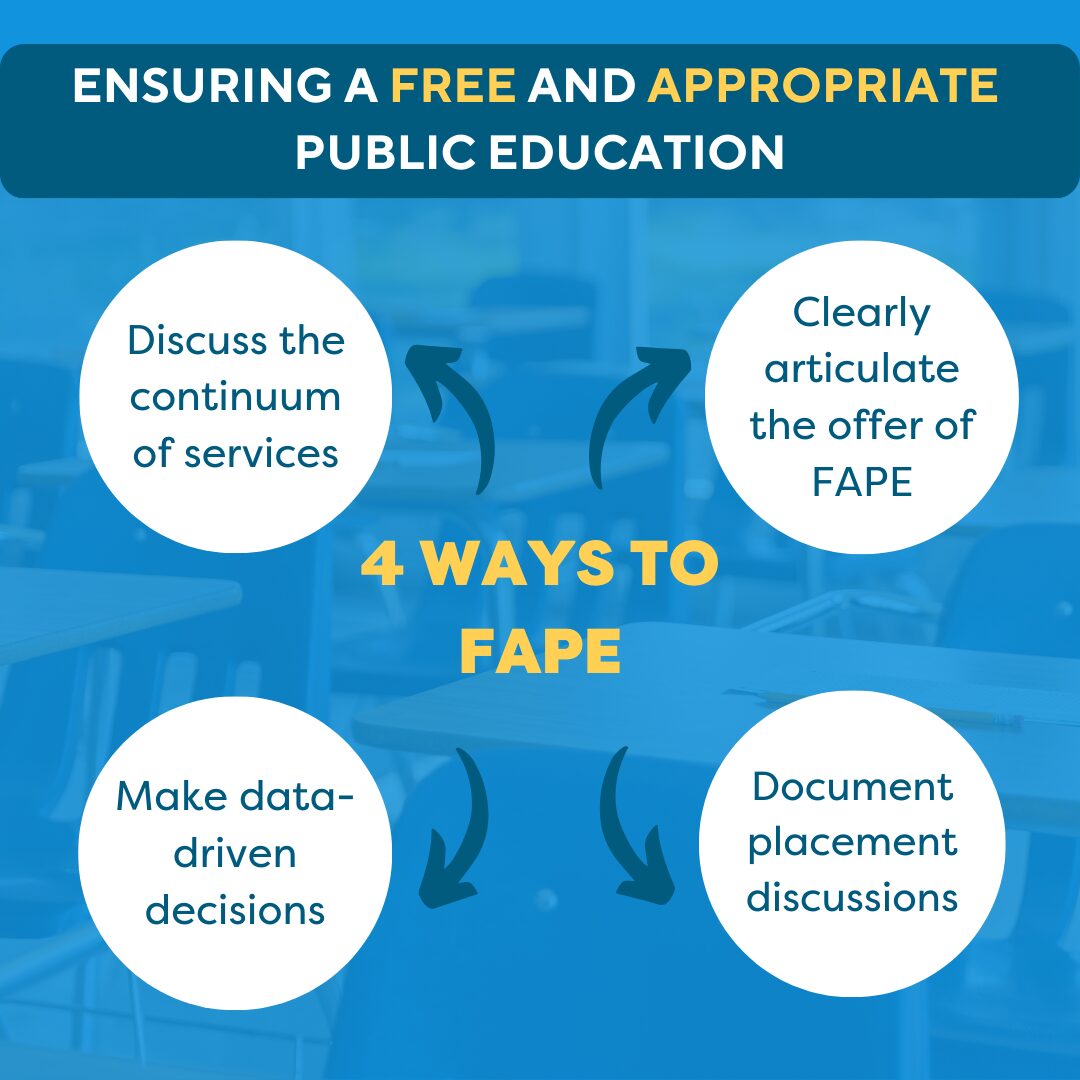Least Restrictive Environment: Definition and Considerations for IEP Teams
In special education, one of the requirements you’ll hear about for determining the placement of a learner with a disability is the Least Restrictive Environment (LRE). But what does that really mean? Well, LRE isn’t just a box to check; it’s a commitment to providing learners with complex needs educational opportunities that are tailored to meet their unique needs.

What is the Least Restrictive Environment (LRE)?
So, what exactly is LRE? It’s part of the Individuals with Disabilities Education Act (IDEA), which says that learners with disabilities should learn alongside their non-disabled peers as much as possible; however, it isn’t just placing them into a mainstream classroom without thoughtful consideration. The goal is to provide supports and services in an environment conducive to their learning and growth, while maximizing access to the general education setting whenever possible.
A Collaborative Decision
A learner’s strengths, needs, and circumstances are unique, which is why LRE isn’t one-size-fits-all. A placement decision requires a team approach, which is where the Individualized Education Plan (IEP) Team comes in.

Four Ways a School District Can Ensure FAPE
Since a school district is responsible for providing a Free Appropriate Public Education (FAPE) within the LRE, here are a few things they need to keep in mind:

- Discuss the continuum of services: During each annual IEP Team Meeting, the district should lay out the full range of placement options available and back them up with data that justifies a recommendation to consider or reject one placement over another. Parents must understand the placement options and how data informs the decision. Even if a learner has been in the system for years, it’s important to revisit these options and document the discussions.
- Clearly articulate the offer of FAPE: The district should use the IEP and the Notice of Recommended Educational Placement (NOREP)/Prior Written Notice (PWN) to explain the proposed placement. This includes whether the learner would spend more or less time in general education, along with any other options considered. If a parent’s request for a certain placement is denied, this should be noted in both the IEP and the NOREP/PWN. A clear district response should be provided to memorialize the parental request and demonstrate that the decision to deny it was based on data and the learner’s needs.
- Make data-driven decisions: A placement decision should be grounded in data. If there isn’t any data showing that the district exhausted its efforts to provide supports and services in the general education setting, it can be tough to justify a more restrictive placement. IEP Teams must consider supplementary aids and services within the least restrictive environment before moving toward more restrictive placements. Without data, districts may be vulnerable to disputes or legal challenges.
- Document placement discussions: It’s also helpful to record these placement discussions in the finalized IEP to show that parents actively participated in the process.
The Continuum of Services
A continuum of services is critical to the provision of FAPE, as the general education setting may not be suitable for every learner. Local Education Agencies (LEAs) must establish a range of placement options to meet the needs of their learners. This could include general education/inclusive classrooms with supplementary aids and services, resource rooms, self-contained classrooms, and specialized schools.
Supplementary Aids and Services
Progress Monitoring
Fostering Trust and Communication when Determining the Least Restrictive Environment
The Least Restrictive Environment (LRE) is one of the fundamental provisions of IDEA. Districts that view LRE not as a static concept but as an individualized and collaborative decision made by a team may better navigate the complexities of a Free Appropriate Public Education (FAPE).
Author Bio:
The author is not an attorney and this article is not intended as legal advice.

Michael McCormick, M.S., LBS, is Michael is an educational consultant with the Sereni Law Group, a boutique defense firm in Delaware County, PA, offering training and professional development for educators, administrators, and related service personnel to enhance their work with special education students . He earned his Master’s degree from Bloomsburg University of Pennsylvania in Special Education and is a Licensed Behavior Specialist in the state of Pennsylvania. Over the course of his career, Michael has served as a teacher of complex learners, adjunct professor, supervisor of special education, and transition coordinator. Hear a three-part on-demand webinar series by Michael on Creating Clear and Effective IEP Plans.

